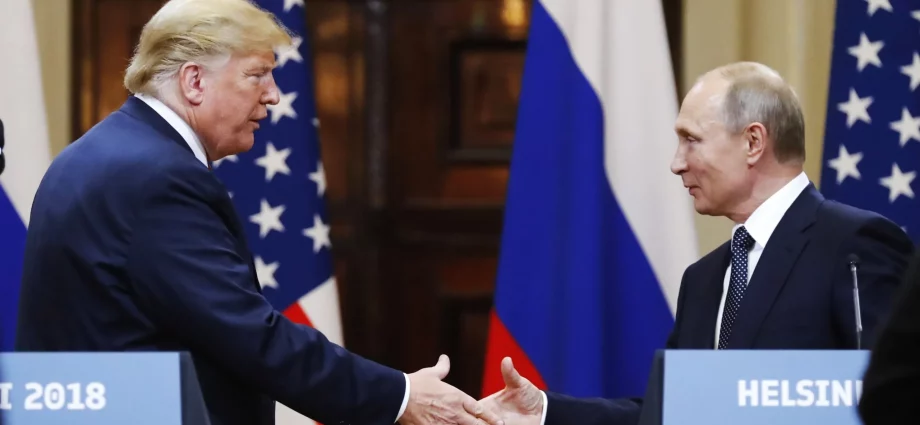Following Secretary of State Marco Rubio’s direct talks with his Russian counterpart, Sergey Lavrov, in the Riyadh summit, President Donald Trump mocked Ukrainian President Volodymyr Zelensky’s complaints about his exclusion. “Today I heard, ‘Oh, well, we weren’t invited,’” Trump said about the Ukrainian leader. “Well, you’ve been there for three years. You should have ended it — three years. You should have never been there. You should have never started it. You should have made a deal.”
To say Trump’s accusations are detached from reality would be an understatement. Not only did Russian President Vladimir Putin seize Crimea in 2014, but this seizure came despite the 1994 Budapest Memorandum in which Russia agreed to, and the United States guaranteed, Ukraine’s sovereignty within its set borders in exchange for its forfeiture of its legacy Soviet nuclear weapons, the 1991 Almaty Declaration that affirmed the borders of Soviet successor states, and Ukraine’s willingness to lease Russia a naval base on the Black Sea.
There were three roots to Russia’s invasion three years ago. The first was Putin’s irredentism. On July 12, 2021, Putin published an article titled “On the Historical Unity of Russians and Ukrainians” that denied Ukraine’s legitimacy and right to exist. He repeated these themes in speeches three days before the invasion and again as his troops entered the country.
The second was arrogance: Putin attacked Ukraine because he believed he could overtake the country within days. For a former KGB officer, he presided over the mother of all intelligence failures, both overestimating Russia’s own capabilities and underestimating Ukraine’s.
Finally, there was cynicism. Putin’s stewardship of the Russian economy was abysmal. His 2008 invasion of Georgia enabled him to use nationalism to distract Russians from their plight. It worked in the short term, but Putin had to subsidize his new territories, speeding up the deterioration of the Russian economy. The Crimea invasion again distracted Russians but sped up the cycle even more, necessitating further aggression.
Put another way, blaming Ukraine for Russia’s invasion would be analogous to former President George H.W. Bush blaming Kuwait for Iraq’s 1990 invasion or former President Franklin D. Roosevelt blaming Poland for Germany’s 1939 invasion.
So what, then, motivates Trump? Experience and upbringing shape every leader. Putin was a KGB officer and saw the Soviet Union collapse around him, an episode he believes to be the single greatest tragedy of the 20th century. Trump was a real estate mogul who famously got rich by promoting narratives and images above truth and with fancy accounting.
Placing responsibility for Russia’s aggression on Ukraine allows for a neat sleight of hand. In any settlement the U.S. might help Russia force and Ukraine accept, Trump changes Crimea and the Donbas from Russian imperial acquisition to reparations Ukraine must pay.
CLICK HERE TO READ MORE FROM THE WASHINGTON EXAMINER
It is counterfactual much like Trump’s posturing was in the high-stakes real estate market. But there is an immoral elegance to the solution that may attract Trump and allow his minions to justify, if not elide, the moral betrayal in which they now engage.
The problem, of course, is this: Just like former British Prime Minister Neville Chamberlain’s Sudetenland appeasement only whetted Adolf Hitler’s expansionism, so, too, will allowing Putin to gain territory only encourage him to further aggression, perhaps even speeding up his ambitions to accomplish what he desires in Moldova, Kazakhstan, the Baltics, and the Caucasus before Trump leaves office.
Michael Rubin is a contributor to the Washington Examiner’s Beltway Confidential blog. He is the director of analysis at the Middle East Forum and a senior fellow at the American Enterprise Institute.


